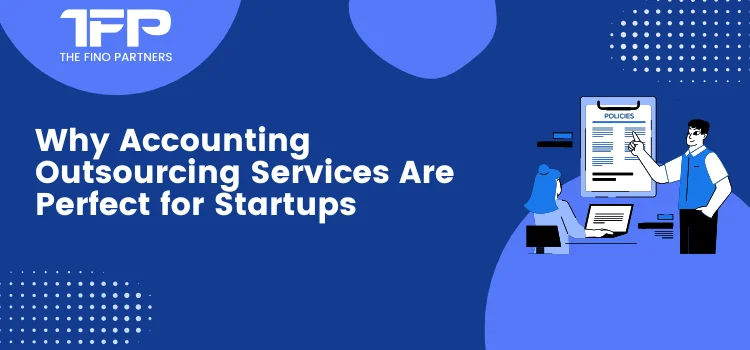As the financial landscape of US startups becomes increasingly intricate, the role of accountants becomes more crucial. They offer financial advice, strategic guidance, etc. Their expertise is indispensable if you're launching a new startup or expanding an existing one. Accounting outsourcing services can provide startups with financial stability. It also provides the support needed to navigate the dynamic startup landscape. Thus, it can achieve sustainable success. It enables startups to focus on their core startup objectives, too. After all, it ensures that financial matters are managed effectively. This article deals with accounting outsourcing services. It also explores its importance in startups.
Who is an Accountant?
The accountant oversees an establishment's accounting. They are responsible for analyzing financial data, managing costs, etc. An accountant works to give economic assistance to a firm. It is more cost-effective. After all, you can access highly qualified financial specialists who can increase your cash flow and profitability. It would help if you employed an accountant based on your specific needs. However, all accountants will assist your company's financial management systems and processes.
Accounting Outsourcing
Accounting outsourcing is using external professionals to handle all your accounting responsibilities. It involves:
- Tax Preparation
- Bank reconciliation
- Payroll processing
- Bookkeeping
One alternative is to employ an in-house accountant. But, this might not be cost-effective. It might need to be more scalable as your company grows. You may also be tempted to manage your books to keep costs down. But, it's easy to make a potentially costly mistake with accounting experience. That’s why many startups opt to outsource instead.
Types of Accountants
Different types of accountants available can empower you to make the right hiring decisions for your US startup. Accountants collaborate with companies in various ways. It includes:
1. Full-time Accountant
When most people think of an in-house accountant, they imagine a full-time position. Industries will often hire full-time accountants with annual revenues of $10 million to handle economic management and any situation destabilizing operations.
2. Fractional Accountant
A fractional accountant works part-time with numerous companies to fill out their workweek. Establishments with less than $10 million in annual revenues that need constant accountant expertise may seek fractional assistance to meet their necessities.
3. Interim Accountant
Interim accountants work with industries to manage their economic demands for a limited time. They provide part- or full-time aids for specified periods. It is usually one to twelve months, instead of fractional accountants who work part-time.
4. Virtual Accountant
A virtual accountant is a cross between a fractional and interim accountant and engages with your firm through virtual work. They are also known as outsourced accountants. It's worth noting that these many accountants' types overlap. Also, the titles are interchangeably used. For example, a full-time virtual accountant could be considered "virtual," while any form of accountant who provides aid from your office is regarded as "in-house."
Accounting Outsourcing & Startups
Accounting outsourcing services are an attractive option for startups. This is due to several strategic benefits. Here are some key reasons. It explores why startups should consider outsourcing their accounting needs:
1. Cost Savings
Outsourcing eliminates the need to hire full-time accountants. That may be a significant expense for startups. It also reduces overhead costs associated with maintaining an internal accounting department.
2. Access to Expertise
Professional accounting firms bring a wealth of knowledge. It also gives experience to the table. They can provide specialized expertise in tax planning, financial reporting, etc. After all, it ensures that financial tasks are handled efficiently.
3. Focus on Core Competencies
Startup founders and staff can concentrate on their core startup activities by outsourcing accounting. It involves product development, marketing, and customer acquisition. After all, it is without being distracted by financial management tasks.
4. Scalability
The financial needs of startups will change as they grow. Outsourcing allows for easy scaling of services up or down. It also ensures that accounting support remains aligned with the growth of the company.
5. Enhanced Efficiency
Professional accounting firms use advanced software and tools to streamline processes, automate tasks, etc. Thus, it ensures accuracy in financial reporting. This efficiency saves time and minimizes the risk of errors.
Winding Up Note
Accounting outsourcing services can provide startups with financial stability. It also supports navigating the dynamic startup landscape. This helps in achieving sustainable success. It allows startups to focus on their core startup objectives. After all, it ensures that financial matters are managed effectively and comply with regulatory requirements. Exemplary accounting outsourcing services can transform your financial strategy. It also propels your startup forward. It helps you achieve your goals. Fino Partners is here to support you. You can explore accountants today and set your startup on the path to financial excellence. Ready to harness the power of strategic accountant expertise for your organization's success?
Let's see how accounting outsourcing services can help you overcome your startup challenges. You can also check how an accounting outsourcing partner can help you achieve your organization's potential. Contact Fino Partners today to speak with one of our experienced outsourced accountants.
Read Also Financial Reporting for Startups: What Investors Are Looking For



























